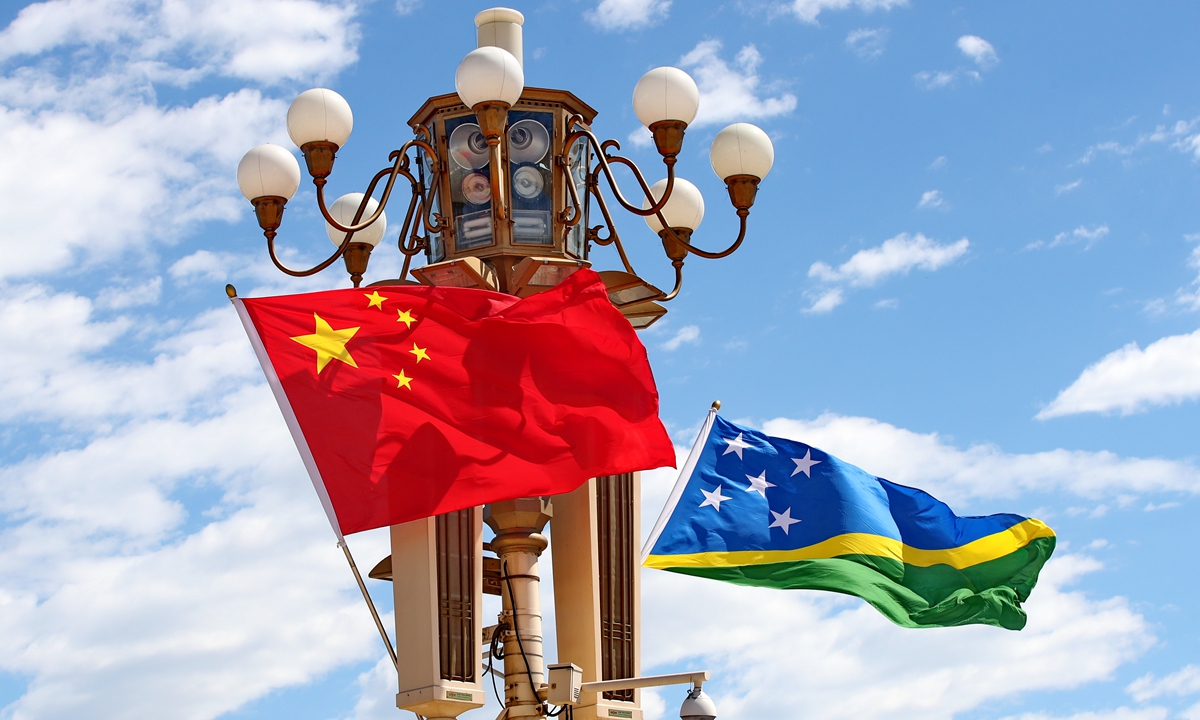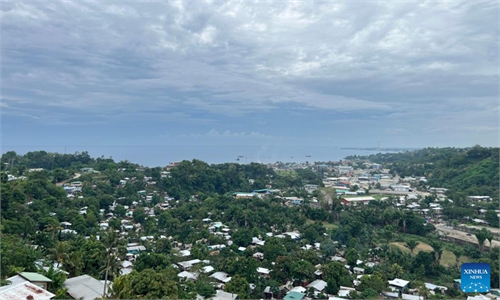
National flags of China and Solomon Islands Photo: VCG
The Solomon Islands election is shaping up to be a tight race, and Chinese experts said that regardless of the result, the government should act in the best interests of the country and not miss out on the development opportunities, considering fruitful results have been achieved over the past several years during the island nation's cooperation with China.
Counting for several seats continued on Monday, as results showed the opposition CARE coalition drawing level with Prime Minister Manasseh Sogavare's OUR party on 12 seats in a 50-seat parliament, according to Reuters.
Independents and micro parties took 16 seats, and the major parties will seek to win independent support in negotiations this week in the race to form a government.
Ever since the election kicked off, Western media has been unceasingly hyping that the results will have a huge impact on China's influence in Solomon Islands and in the South Pacific region.
Chen Hong, director of the Australian Studies Center of East China Normal University, told the Global Times on Monday that China has always adhered to the principle of non-interference in others' internal affairs. The election process in the Solomon Islands is a response to the will of the people and has no relation to China, he added.
"Since Sogavare came to power, he has developed mutually beneficial diplomatic relations with China, leading to tangible improvements in the country's economy and livelihoods, which has made some Western countries resentful," Chen said.
Chen pointed out that the South Pacific region is a key point in the US' anti-China strategy, and the Solomon Islands is an important country in the region.
Since China and Solomon Islands established diplomatic relations in 2019, the US has never stopped exerting pressure on the island nation, such as sending Australia and New Zealand as its proxies to woo and coerce it, but with little success, said experts.
No matter who is elected, the Solomon Islands should be cautious of foreign intervention during vote counting and government forming, particularly of instigation by the US either directly or through its proxy Australia, Chen warned.
Chen stated that with all the various parties in the Solomon Islands, it cannot be ruled out that a coalition government will be formed as a result of this election, which will help maintain policy stability.
While some voices believe the potential coalition government would weaken China's influence in the South Pacific region, in reality, China has never sought to exert influence in the region, Chen stressed.
He emphasized that since establishing diplomatic relations with the Solomon Islands about five years ago, bilateral cooperation has achieved fruitful results. Although the domestic political situation in the Solomon Islands is still unclear, regardless of the outcome, the country's leaders should act in the best interests of their own country and not blindly look to reduce so-called "Chinese influence," hindering normal cooperation and missing out on development opportunities.


